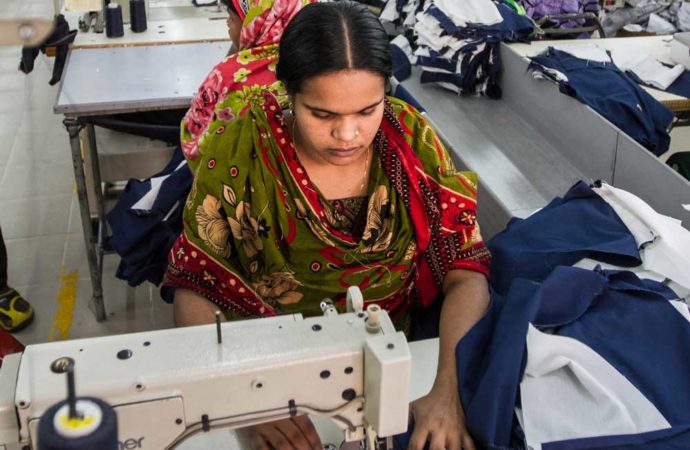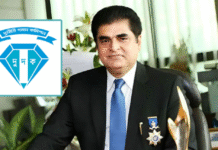The Rana Plaza collapse was a big blow to our economy, but we managed to learn a lot from it
Iwas nearly forced into the BGMEA advisory board by my friend Atiqul Islam, former BGMEA president, to help him come out of the mess that was the Rana Plaza collapse and other relevant incidents.
It was a very challenging time — morale was down, many small factories were taken out of the global supply chain, orders were cancelled, rights groups were becoming vocal against the Bangladesh apparel sector and so was the international civil society, academia, and development partners.
Anything the BGMEA leadership thought of doing was twisted against them, be it individually or collectively.
Every little concession or waiver from the government was being challenged by the media and part of the local civil society. There were surprises everywhere.
A headless chicken
Our BGMEA friends didn’t know what to do. The government and senior political leadership were out to salvage our apparel sector in any way possible — perhaps the silver lining in this sordid affair.
Our PMO, finance ministry, labour ministry, and the foreign ministry showed an unprecedented combined effort in tackling the situation.
The buyers, upon pressure from international civil society, somehow echoed voice of a portion of our civil society; and the government decided to form Accord and Alliance to streamline their efforts in ensuring worker safety in our RMG sector.
While the ILO put in an integrated effort along with the government.
The sad part was that certain elements within the BGMEA leadership were still feeling rather restrictive, and even aggressive to some extent.
They were averse to any criticism or media reports, even if it was genuinely constructive. We had long sessions with them and Atiqul Islam.
We forced them to bite a few bullets — build bridges with media community, the civil society, the international media, and business school professors, and, more importantly, hold regular dialogue with workers and their leaders.
Damage control
That was the time we recruited a few serving journalists to join the BGMEA, strengthened their research wing, got in touch with leading academia at Harvard Business School and Stern School of Business, changed the BGMEA directory to “apparel story” to accommodate more opinions from the factory floors and other stake-holders.
In the same way, BATEXPO became the “Bangladesh Apparel Summit.”
With extensive help from ILO, the EU, and other global stake-holders, we were able to put up Centre of Excellence for Bangladesh Apparel Industry.
The market could see a lot of synergy taking place between broader stake-holders.
Most of us realised that our workers were the true partners in progress — and we genuinely need to take care of our true partners
It wasn’t all about scrubbing off the bad image and reputation that our RMG industry had donned after Rana Plaza; we also worked very closely with National Board of Revenue and Bangladesh Bank to reevaluate the apparel industry’s tariff structure, especially to save the small ones from the brink of collapse, increase the size of the export development fund (EDF), and increase the entity/single party limit under EDF.
We initiated dialogue with the Japanese embassy and JICA to explore the possibilities of putting up a financing package in order to retrofit and relocate the small factories.
We held several discussions with regard to putting up an integrated financing package for establishing the “garments polli” at Bausia, Munshiganj.
The true partners
We weren’t quite as successful as we’d hoped we’d be, since a befittingly large financing package at an affordable rate could not be arranged commercially.
A few Chinese companies did show interest, one even signed an MoU. I am not aware of the latest development.
One thing we understood was that the Bangladesh apparel industry has reached the “too big to fail” stage, due to its size and product diversity.
Most of us realised that our workers were the true partners in progress — and we genuinely need to take care of our true partners.
We kept on talking about “productivity improvement,” but not much could be done as it required heavy financial commitment.
While few of our apparel producers reached an enviable stage — be it green factory environment, workers health and safety, building technology solutions, or the business re-engineering process — many others lagged behind.
It’s important to note how most of our producers realised that the government can’t do much apart from using police force to pacify mobs or workers.
We need to solve our own problems in managing workers, through the adoption of better technology to increase production, avoiding any surprises by putting up improved fire-safety equipment, and ensuring worker training and efficient financing package.
We are now talking to the media, the US state department, the EU, and other development partners much more openly than in the past.
We are ready to take criticism into account, go the extra mile to build friendships, and constantly research new avenues for growth.
Thanks to Atiq and his BGMEA team for rising to the occasion and making a commitment to learning from mistakes.
Mamun Rashid is a leading economic analyst and former advisory board member, BGMEA.
Source: Dhaka Tribune











This is the sorriest piece of journalism/reportage that I have seen and that is saying a lot. It is sad to see how Mamun has succumbed to the pressure, perceived importance and possible financial renumeration of the BGMEA. Blithe sentences like ‘Anything the BGMEA leadership thought of doing was twisted against them, be it individually or collectively.Every little concession or waiver from the government was being challenged by the media and part of the local civil society. There were surprises everywhere.’
The BGMEA is an organisation that has flouted social, moral, ethical and legal rules. Its owner members are millionaires at the cost of running ‘slave labour factories’, where workers are kept on the books by having unpaid back wages, any minimum wage brought up by the Government is protested (through its voluntary spokespersons, e.g. Rubana Huq who combines literary jargon with protecting larceny), where the Head Office is a shining example of ‘grab the land and screw the country’, where criminals like Rana Plaza owners are not brought to justice, where compensation to injured and dead workers families are not paid after 4 years….and the list of neglect, corruption, power and profit hungry business goes on and on.
He tries to paint a picture of him coming to the rescue of a struggling industry, thus making twin errors of judgement.
‘Our BGMEA friends didn’t know what to do. The government and senior political leadership were out to salvage our apparel sector in any way possible — perhaps the silver lining in this sordid affair.’
He is right on one count…it is ‘sordid’ especially the BGMEA, its owners (73% are supposed to be in the Parliament, thus how can poachers be game keepers) and this trashy piece of unconscionable writing.